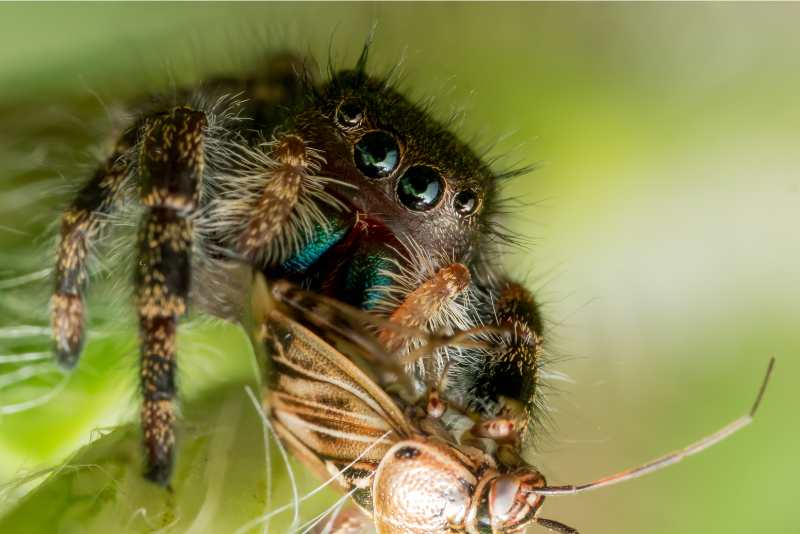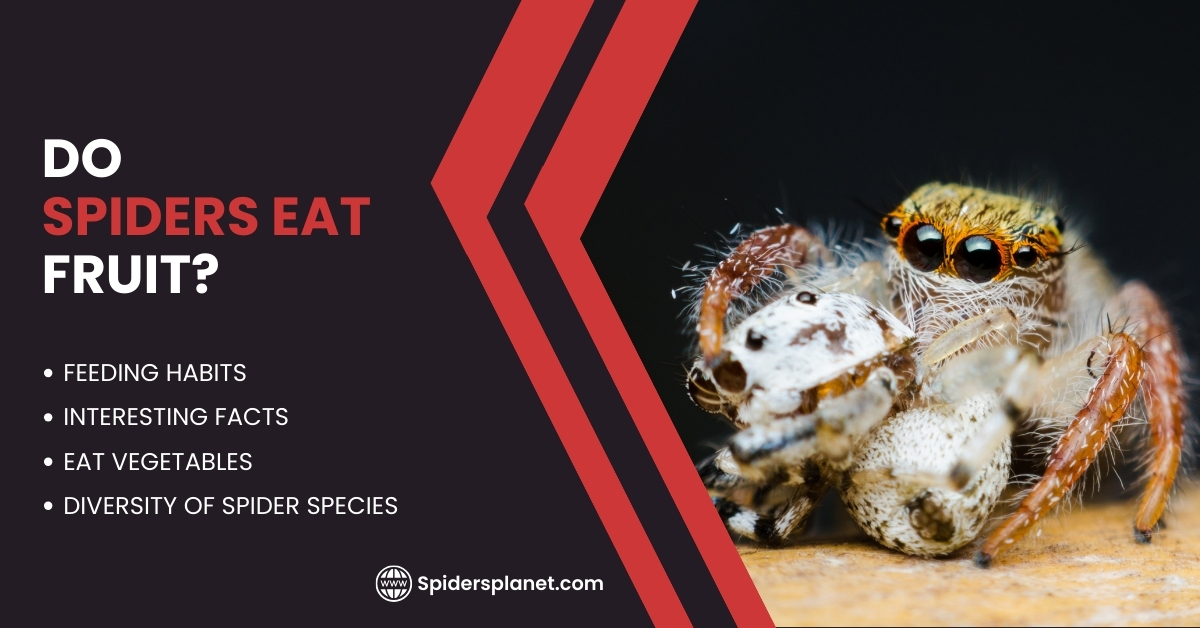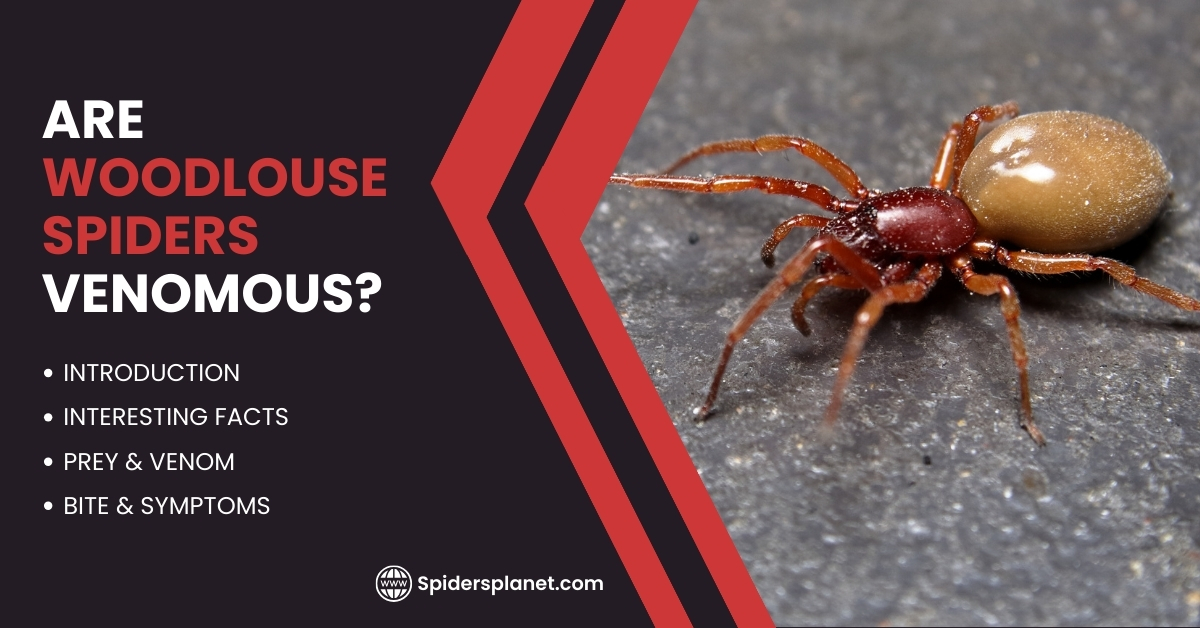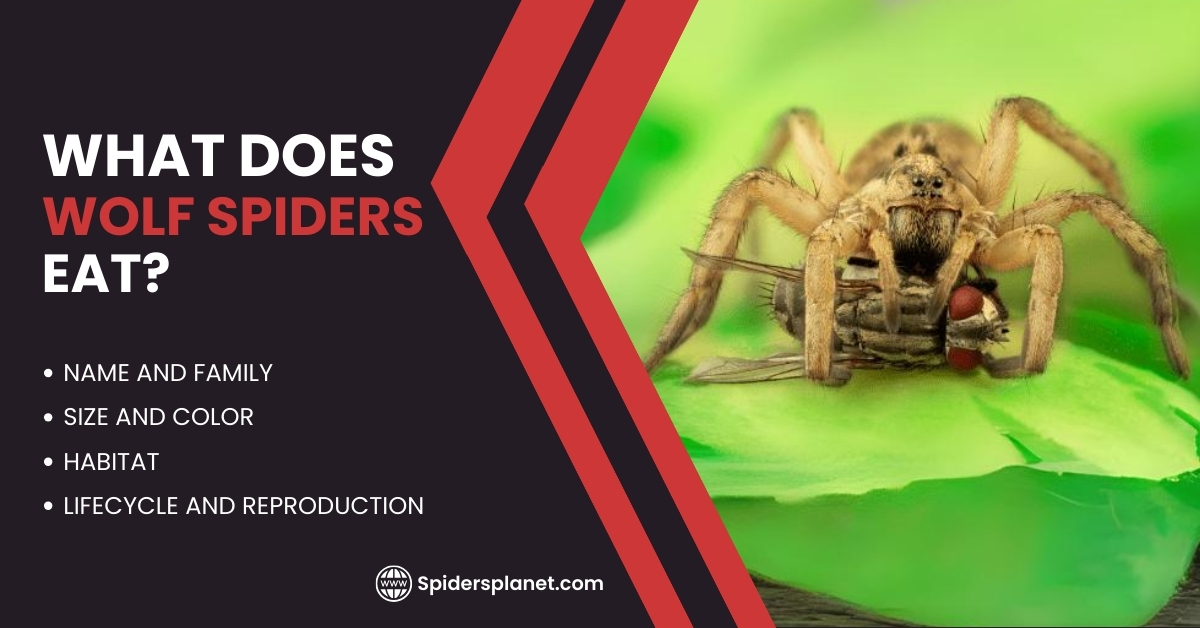If you own pet jumping spiders, one of the most important tasks is to feed them properly. A daily and nutritious diet will not only keep your pets looking healthy, but it will also give them plenty of energy for their day to day activities.
Understanding the diet of jumping spiders is especially important for newly pet owners. And by studying what these spiders eat, you can ensure that they are receiving a nutritious diet that meets their dietary needs.
So in this article we have laid out everything you need to know! From what jumping spiders eat, what they daily intake is, what size prey is suitable, and more!
So, What Do Jumping Spiders Eat?
Jumping spiders are carnivorous, which means that they predominantly feed on insects to obtain all the nutrients they need to survive. Jumping spiders are categorized as active hunters, setting them apart from their web-weaving counterparts.
They use their keen vision and powerful legs to actively seek out and pounce on their meals. This dynamic lifestyle dictates their dietary preferences, which mainly include a variety of small insects and arthropods.
Main Meals:
- Flies
- Moths
- Crickets
- Roaches
- Meal Worms
- Waxworms
Flies constitute a significant portion of a jumping spider’s diet. They are typically abundant in various habitats, making them readily available prey. Flies also offer a substantial source of protein, vital for the spider’s growth and health.
Moths represent another common food source for jumping spiders. Despite moths’ ability to take flight, they are no match for a jumping spider’s swift and accurate attack.
For larger jumping spiders, crickets often feature on the menu. While crickets present a greater challenge due to their size, they are nutrient-rich, supporting the spider’s development and overall well-being.
Jumping spiders in captivity are sometimes fed roaches, meal worms, and wax worms. These insects are readily available in pet stores and can be stored conveniently. They also add diversity to the spider’s diet, which can enhance their overall nutrition.
Nutritional Value Of Their Prey
Different insects offer varying levels of nutritional value to jumping spiders. Here is a table that details the nutrient values from some common jumping spider prey items:
| Prey | Protein | Fat | Fiber | Moisture |
|---|---|---|---|---|
| Flies | 60-70% | 10-15% | 2-3% | 60-75% |
| Moths | 50-60% | 20-30% | 3-5% | 65-75% |
| Crickets | 60-70% | 5-10% | 3-5% | 70-75% |
| Roaches | 40-50% | 25-35% | 6-8% | 55-65% |
| Mealworms | 20-30% | 25-30% | 2-3% | 60-70% |
| Waxworms | 15-22% | 40-50% | 7-10% | 50-60% |
Please note that these are approximate values and can vary based on the size, age, and diet of the prey. The nutritional value also depends on how the prey has been raised and what it has been fed. Always ensure that the insects you feed your spider are healthy and have been properly cared for.
What Do Baby Jumping Spiders Eat?
Baby jumping spiders consume more prey than adults. Though small insects are the prey, babies consume insects exactly like adults do.
Even though they are primarily carnivorous, young jumping spiders also consume nectar, making them omnivores. For very young baby jumping spiders, Drosophila fruit flies are the best prey.
However, it’s very important to remember that they require a lot of protein to grow and develop properly. When they are young jumping spiders are very active and need a lot of energy to keep up with their rapid growth.
This is why you need to provide them with a variety of insects that are high in protein and other essential nutrients.
Some of the best insects to feed baby jumping spiders include:
- Wingless fruit flies
- Pinhead crickets
- Small mealworms
- Aphids
You also need to consider their size! baby jumping spiders are very small and delicate even small an the adults, so it is important to feed them appropriately sized prey. As mentioned, feeding them larger insects can be dangerous and even deadly.

Should You Feed Jumping Spiders Live Or Dead Insects?
So at this point, you’re properly thinking if a jumping spider can get injured by its prey why not feed it to them dead right? Well, there’s a good reason for this, not mention, that it’s one of the most common questions asked by new pet owners. So let’s compare them both below…
Live Insects
Many spider owners choose to feed their pets live insects, because it is more natural and stimulating for the spider.
Jumping spiders are active hunters and love stalking and catching their own prey. By providing live insects, you’re giving them the opportunity to engage in their natural hunting instincts.
However, more importantly live insects are more potent in terms of nutritional content, which can lead to healthier growth and development for the spider.
Dead Insects
The other option is to feed your jumping spider pre-killed insects. This can be more convenient and hygienic, as you won’t have to worry about any escaped insects in your home. Additionally, pre-killed insects can be easier to portion and store for future feedings.
However, the problem with this is dead insects are not as nutritionally beneficial as live insects, as many of the nutrients can begin to deteriorate after death.
Also, dead insects don’t move which is unnatural for jumping spiders, who are accustomed to catching their prey in motion. As a result your jumping spider may not eat the dead insect which can have a impact on their health.
If you want to know, we have written a whole article on this very topic called: Will (And Do) Jumping Spiders Eat Dead Insects?
How Often Do Jumping Spiders Eat?
Jumping spiders are known for their voracious appetite, and they eat frequently to maintain their energy levels. The frequency of their meals depends on several factors, including their age, size, and activity level.
Generally, adult jumping spiders feed every few days, while younger spiders may require daily meals to support their growth and development.
In captivity, it’s essential to provide jumping spiders with a consistent source of food to ensure their health and well-being.
Feeding them once or twice a day is usually sufficient, but it is essential to monitor their weight and behavior to ensure they are getting enough to eat.
Precautions To Take
When it comes to the size of their prey you need to be very careful, especially with crickets or mealworms, as these can be dangerous to jumping spiders when they are in the sensitive phase of molting.
These insects may injure or even kill your spider! Therefore, it’s necessary to avoid feeding your spider during their molting process.
Once they have gone through the molting process, then of course, they can eat the occasionally cricket or mealworm.
What Happens If Jumping Spiders Don’t Eat?
Jumping spiders, like all living creatures, need food to survive. If they don’t eat, they will eventually become weak and eventually die.
In some cases, jumping spiders may stop eating due to stress, illness, or environmental changes. When this happens, it’s important to take action to help the spider regain its strength.
Here are some things that can happen if jumping spiders don’t eat:
1. Weight Loss:
Jumping spiders that don’t eat will lose weight quickly. This is because they are not getting the nutrients they need to maintain their body weight. If a jumping spider has lost a significant amount of weight, it may be a sign that it’s time to take action.
2. Weakness:
Jumping spiders that don’t eat will become weak over time. This can make it difficult for them to move around and hunt for food. If a jumping spider appears weak or lethargic, it may be a sign that it’s not getting enough food.
3. Death:
If a jumping spider doesn’t eat for an extended period of time, it will eventually die. This is because its body will not have the energy it needs to function properly. It’s important to take action if a jumping spider stops eating to prevent it from dying.
4. Unable To Molt:
Jumping spiders undergo a process called molting, or shedding of their exoskeleton, in order to grow. During this process, jumping spiders need to consume a sufficient amount of food to store the necessary nutrients for the development of a new exoskeleton. If a spider doesn’t consume enough food or stops feeding altogether, they won’t have enough nutrients to complete the molting process properly.
Do They Eat Their Own Species?
Jumping spiders, like most spider species, are known to be cannibalistic in certain circumstances. As they are carnivorous creatures, they rely on other insects as their primary food source.
However, when it comes to eating their own species, it’s not always a straightforward answer. Cannibalism among jumping spiders is relatively common, especially when there is limited access to food or high competition for resources.
While some sources suggest that males are generally more prone to eat their own kind, cannibalism isn’t limited to one gender or stage in life.
Prey size, prey availability, population density, and even mating status can also contribute to cannibalistic behavior in jumping spiders.
In some cases, cannibalism is a natural part of the breeding process, and it is necessary for the female’s survival. After mating, female jumping spiders may eat their mate to obtain important nutrients needed for the development of eggs.
This phenomenon, known as sexual cannibalism, is believed to increase the chances of successful reproduction and survival of offspring.
Conclusion
So there you have it. Now you know what to feed to your pet jumping spider. If you found this article helpful feel free to check out our other articles! We have a whole category about jumping spiders there you can find more helpful contents.
You May Also Like To Read:



